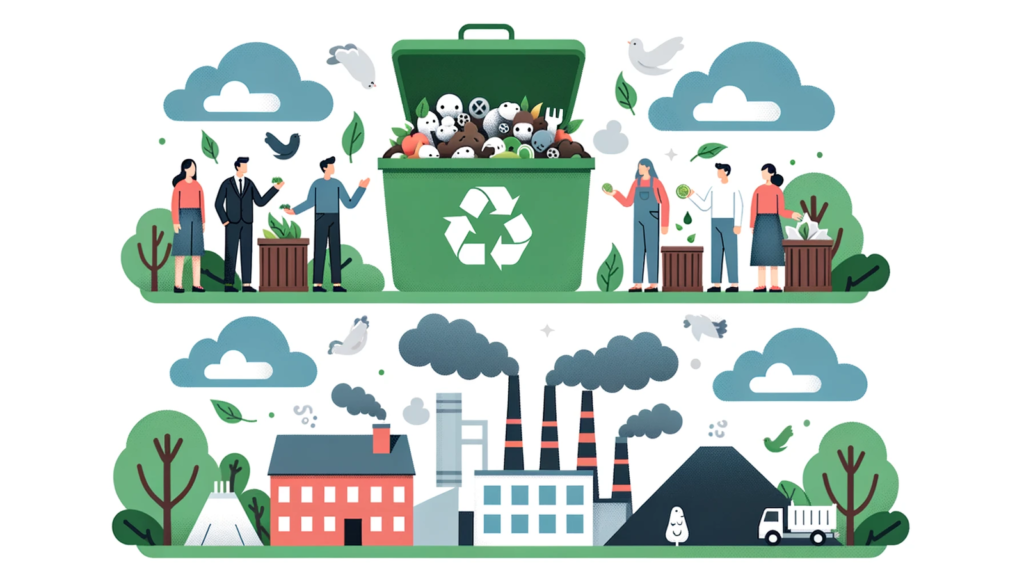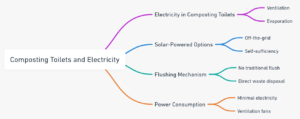
Environmental Impact: Exploring how composting reduces waste and greenhouse gas emissions.
Composting is a natural process that transforms organic waste into a nutrient-rich material called compost. This practice has gained recognition for its significant contribution to reducing waste and greenhouse gas emissions. By diverting organic waste from landfills, composting reduces the amount of methane, a potent greenhouse gas, released into the atmosphere. Methane is produced when organic waste decomposes in an oxygen-deprived environment, such as in landfills. However, through controlled composting, the decomposition process occurs aerobically, resulting in the release of carbon dioxide, which has a substantially lower global warming potential than methane. Therefore, composting not only reduces the volume of waste going to landfills but also minimizes the release of harmful greenhouse gases, making it an effective practice in mitigating climate change.
Furthermore, composting plays a vital role in reducing the need for synthetic fertilizers in agriculture. When compost is applied to soil, it enriches it with essential nutrients, improving its fertility and structure. This reduces the reliance on synthetic fertilizers that are energy-intensive to produce and can have detrimental effects on the environment. Excessive fertilizer use can lead to nutrient runoff, contaminating water bodies and causing harmful algal blooms. Composting provides a sustainable and environmentally friendly alternative by recycling organic waste into a beneficial soil amendment that nourishes plants naturally. Moreover, healthier soils enriched with compost have better water retention capacity, reducing the need for irrigation and promoting water conservation.



